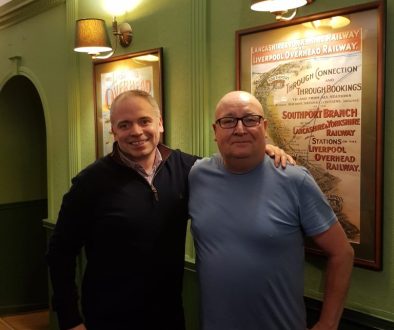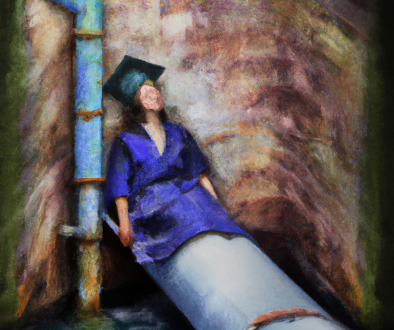Solidarity Spaces and Working Class Voices by Becky Bainbridge, Francesca Bernardi, Jo Fletcher-Saxon, Fraser Mycroft, Lou Mycroft, Joanna Norton, Jodie Rees, Amber Taylor-Smith, Jane Williamson
When we found one another in lockdown, in a Zoom room called the Solidarity Thinking Space, we also found our voices. Not that we’d been exactly silent before; our number included many outspoken activists. We found that coming together around our shared identity as ‘working class thinkers’ (still an uncomfortable label) enabled us to be unguarded in a way which caused us to reflect on how guarded we’d been before.
The Solidarity Thinking Space, hashtag #SolidaritySpace, is jointly facilitated in a Thinking Environment (Kline, 2020), a set of processes which enable people to think well together. There’s a discipline to it, involving not interrupting one another, listening to generate others’ best thinking and leaving role, rank and ego at the door. We hope to model this process at the Working Class Academics Conference 2021. It has also been the basis of the popular Chai Conversations events, leading up to the Conference.
Our regular Fridays, late afternoon, have become precious unguarded spaces in a world which sees our deep rage as inappropriate (to what? we ask) and aggressive. We may not go quite so deep in public, but we won’t be doing any manipulative role-play either. In our Conference session, you will experience us thinking as our authentic selves and see something of how we gain strength and energy from each other.
We will focus on a topic about which we have much to say, but which hopefully won’t lead to the sort of incandescent outrage precipitated by the mention of Priti Patel (a popular ‘light the blue touchpaper’ moment for us all). Shouty rants still only feel safe in our safe space. We are going to present a genuine Solidarity Thinking Space around the subject of Working Class Voices.
Our thoughts will inevitably flow, because these are experiences that we all share. From the social coding we are subjected to when we say ‘tea’ instead of what we now understand to be the middle-class term ‘supper’ (not two Jacob’s cream crackers and a glass of milk then), to the way society views us when we enact our right to swear, you will hear us rip into the microaggressions experienced by all of us who are perceived to sound like we come from a council estate – because of course, there’s no other way to be working-class. Or the disappointment we feel when we encounter other working-class people who think we’re better than them because of where we live and the work we do, since we occupy liminal spaces when it comes to who infers what, when they hear us speak.
Being told that if we want to succeed we’d need to drop our regional accents has led some of us to be recommended elocution lessons and we’ve all – at some point – been told to talk ‘proper’ by our mams, who don’t want ‘where we come from’ to hold us back. Or the surprise and amusement when people find we call our mam ‘mam’. The times we’ve been told by middle-class colleagues – in some cases, quite recently – that we can’t teach in our regional accents without conveying ‘incorrect’ English grammar to students.
Whether it’s our language structure, swearing, accents or dialect, the message that we need to express ourselves not as ourselves is something we have all experienced. Accents don’t equal class, because some of us do change how we speak to fit in, but bias is manifold, comes at us from all quarters and leaves us in limbo – “stop your Royal speak” one of us was told, outside their local pub. We are too posh for home, and not posh enough everywhere else. The ‘novelty factor’ of a regional accent is something many of us have been patronised by, being told how ‘real’ or ‘authentic’ we are, whilst knowing that when it comes to the big decisions, our views will be marginalised and not taken into account.
Food is a minefield. Not only is ‘tea’ supposed to be ‘supper’, but we might have our dinner at midday. And a liking for avocados does not actually signify the class with which we identify. We may not move in circles where choosing the wrong fork means social disgrace, but we still feel uncomfortable in ‘posh’ spaces.
The expectation that we should suppress our emotions to be ‘appropriate’ is powerfully shaming, even for those of us racialised as ‘white’ (and we recognise how much more damning this is, for black, brown and Gypsy/Romani/traveller friends on the intersection of class and race). We are expected to work so much harder at playing nice and we are silenced frequently for being too emotional, sweary, common, gobby, outspoken and – yes – radical. The associated shame makes us learn to silence ourselves.
How we look, too, shouts our ‘difference’ from the power-holding norm. We were shocked to encounter our hoop earrings and clothing choices being parodied by photographic artists and instagram filters alike. Shocked, but not surprised. And school uniform is not the equalizer its fans claim it to be, in our experience.
We hope that our experiences resonate and strengthen the people who find them relatable. And if you come along to our Conference workshop, you may even feel empowered to start up a Solidarity Thinking Space of your own.
Praxis Cartography
We present our references as a cartography – a map which shows how our thinking has been influenced both by those who have the privilege to get published (and maybe even enter ‘the canon’) and those who do not. Using a Padlet rather than a list means it remains a living space which we can grow.

